
The Role Genetics Plays In How High You Get
From tolerance to cannabis strain to... DNA? Research highlights the complex genetic factors that can influence your high.
Are you feeling it yet? This classic question has a more complicated answer than you might think.
Cannabis affects us in diverse ways. It can help us relax, lift us up, even alleviate symptoms of chronic illness. From one person to the next, our relationships with weed are as varied as we are. Two people smoking the same strain might still have vastly different experiences. The question is, why?
How high we get can be influenced by a multitude of factors. Recent research shows that many of them might be genetic.
COMMON FACTORS THAT AFFECT YOUR HIGH
First, let's start with the basics, then we'll get into the more cutting-edge stuff. Wondering why your friend got blazed last night and you barely felt anything? One (or more) of these common factors could be the reason.
TOLERANCE

Ah, tolerance. It's like an annoying shadow that won't stop following you, waiting to ruin your high. If you're a frequent smoker, we bet you're already groaning. If you're still in the dark, let us shed some light on this classic conundrum.
When you consume cannabis regularly, your body starts to "get used to it". You end up needing more and more to get the same effects. In the case of cannabis, it's inconvenient, but not dangerous.
If you find your tolerance going up, you might want to take a break. Studies show that avoiding the chronic for even a few days can help bring your tolerance back down.
There are also other things that can affect your high and overall cannabis experience. If you're trying to get to the bottom of why you feel a little off (or just don't feel it), here are a couple of questions to ask yourself:
HAVE YOU EATEN RECENTLY?

If you're getting high but haven't eaten all day, you might find yourself feeling dizzy and anxious. This could be especially true if you're consuming edibles.
How recently you've eaten can affect how your body absorbs THC and CBD. Research shows that dosing on an empty stomach can make you feel the effects of cannabis more rapidly, but you'll end up with a shorter, less potent, and less stable high.
To minimise unpleasant side effects, make sure you follow this classic advice: take with food. And no, the "brownie" part of those pot brownies is not what we mean.
WHAT ELSE HAVE YOU TAKEN?
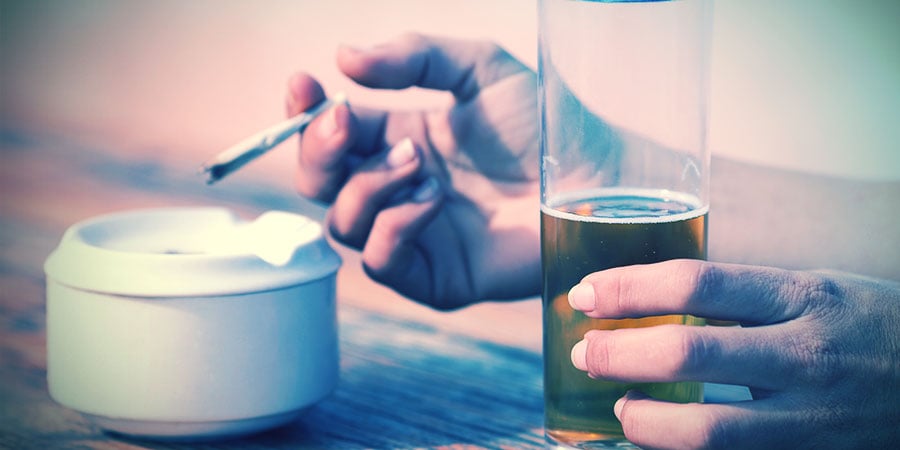
Mixing substances can be risky and isn't something we recommend. This applies to prescription and over-the-counter medications, as well as alcohol and recreational drugs. That said, it's not necessarily bad to consume cannabis along with your regular meds. Just make sure you're well-informed about safety and potential interactions. Your pharmacist can be a great resource here.
Listen, we're all adults, and what you put in your body is up to you. But, if your weed is feeling a little whack, consider what else you've ingested that could be playing a role.
ARE YOU STRESSED?

If you've been stressed out lately, cannabis can help you relax and calm your anxiety. Nevertheless, consume with caution, because the sword can cut both ways.
Depending on your overall stress level, you could end up feeling anxious and paranoid. So, if your boss is on your back or you're trying out a new strain, it might be smart to slow your smoke—just until you know how it will affect you.
If you find that you're frequently freaking out, it could be more than just stress. In fact, it could be your DNA. Researchers in the UK have identified genes that may increase susceptibility to cannabis-induced visual distortions, paranoia, even psychosis.
Which brings us to...
THE RECENTLY DISCOVERED ROLE OF DNA

The human body is a beautiful, complex machine. From eye colour to food preference to susceptibility (or resistance) to different diseases, our DNA maps out our unique genetic profile.
Well, it turns out the high we experience is also influenced by these biological building blocks. Recent research indicates our genes may play a significant role in how cannabis affects each of us. Notably, the effects can be as varied as we are.
DNA AND THE ENDOCANNABINOID SYSTEM
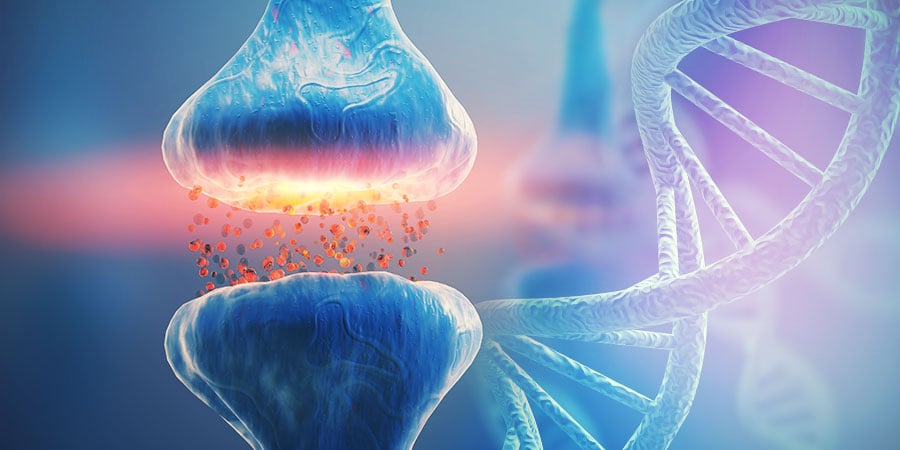
The main way cannabis acts on the body is via the endocannabinoid system. This system has two main components: neurotransmitters called endocannabinoids, and the receptors that love them.
These receptors are found on cells throughout the body, which is why cannabis influences our biological systems in diverse ways. Phytocannabinoids, like THC and CBD, are the compounds in cannabis that bind to these receptors. They mimic the endocannabinoids naturally produced by your body.
CB1 and CB2 receptors are like the one-two punch of the endocannabinoid system. THC mainly activates CB1, causing us to get high. This interaction can also stimulate appetite, reduce pain, and alleviate nausea. CBD, however, works in more indirect ways, and shows potential in treating anxiety, certain forms of epilepsy, and autoimmune disease.
So, how does this relate to our DNA?
VARIATIONS IN CB1 AND CB2
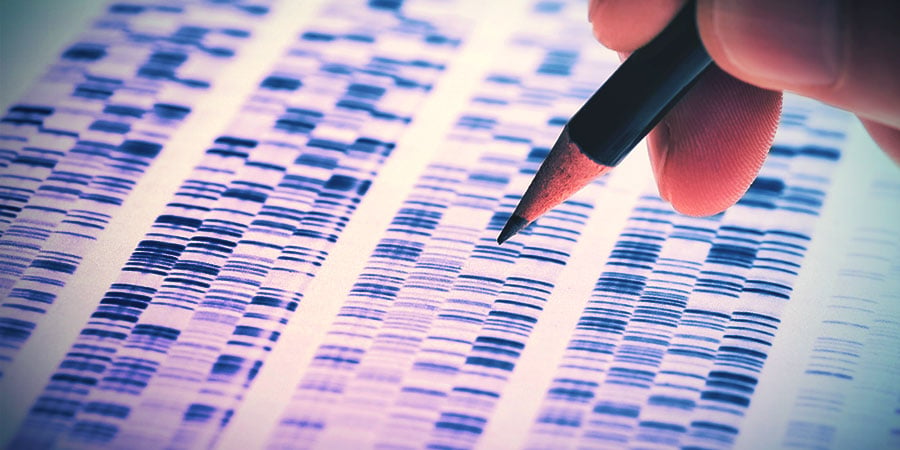
The receptor sites we've been talking about are essentially proteins encoded by our genome. As with eye colour, mutations in that code can produce a different outcome. Variations in our DNA can result in proteins that function in different ways.
So far, scientists have identified 15 variations in the human CB1 receptor protein, and 7 mutations in the CB2 receptor. Some of these variations can affect your sensitivity to THC and other compounds in cannabis. FAAH is another key enzyme that breaks down endocannabinoid molecules. There are 11 mutations in the human FAAH gene that could affect how your system processes cannabis.
The point is, if you're that one person who always gets way too high, don't be embarrassed. You can't help it if it's in your DNA!
MUTATIONS IN THE LIVER
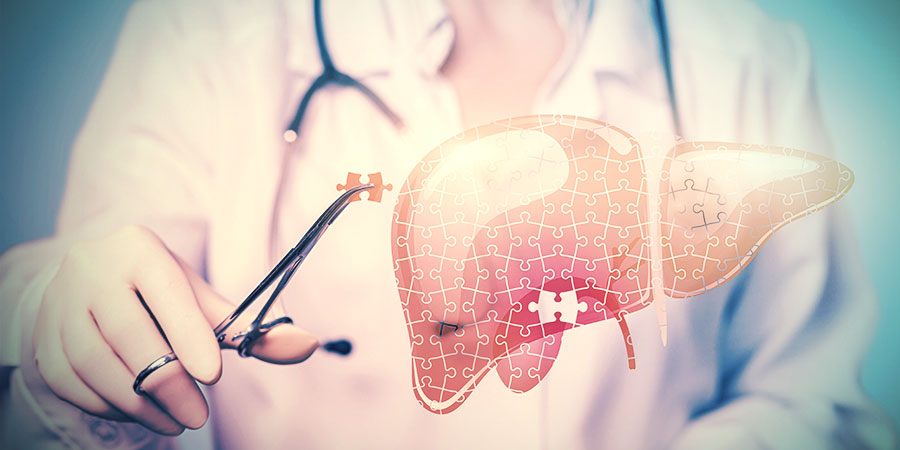
The liver is responsible for processing myriad substances that enter our bodies, including cannabis. This is especially true when it comes to oral consumption. So, if you're an edibles-lover, take note.
Key enzymes in the liver are responsible for metabolising THC. The blueprint for these enzymes is a gene with more than 50 known variations—it's called CYP2C9. No, that's not a droid from the latest Star Wars movie. Yes, you can find out which variation you have with an at-home genetic testing kit!
If you have the CYP2C9*3 variant, which is common in people of European descent, you might metabolise THC at a slower rate. That means cannabis could get you higher for longer. A scientific study specifically looked into this. Researchers found that participants with two copies of this variant had THC levels three times higher than those without the mutation.
OTHER GENES IN THE POOL
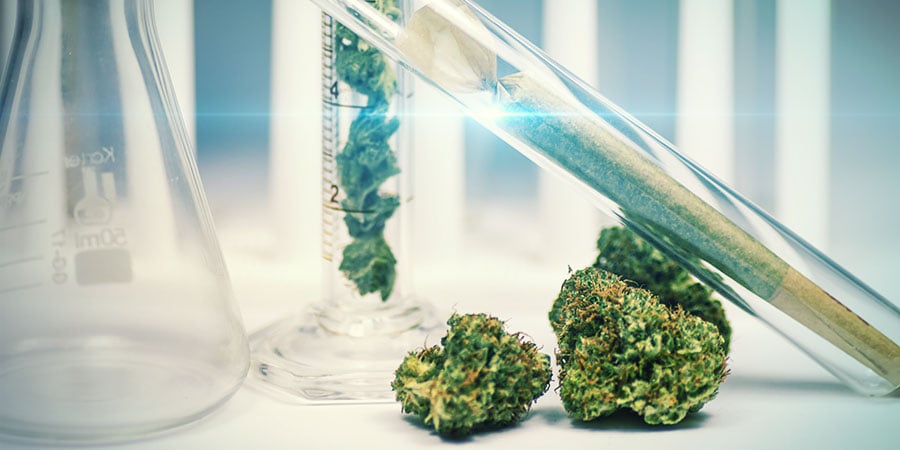
When it comes to cannabis, untold variations in the human genome might influence how we get high/how high we get! As fascinating as these revelations are, research is ongoing. We're still working to understand the full implications of these new discoveries. Maybe one day, a simple cheek swab test will give you a full cannabis-related genetic profile. Unfortunately, we're not there yet.
That said, one key takeaway is clear: we're all different. Cannabis influences our bodies in unique and complex ways. Luckily, the more we learn, the more empowered we are. Scientific research can be an incredible tool for understanding. Along with personal experience, it can help us use cannabis in the ways that work best for each of us.
In the meantime, let's be kind. Compassion and knowledge-sharing are essential parts of the stoner code. If your friend is freaking out while you're chilling in the zone, try not to roll your eyes. Let them know: it could be genetic!
- (n.d.). CBD oil for anxiety: Research, benefits, and risks - https://www.medicalnewstoday.com
- (n.d.). Psychiatric News - https://psychnews.psychiatryonline.org
- (n.d.). CNR1[gene] - ClinVar - NCBI - https://www.ncbi.nlm.nih.gov
- (n.d.). CNR2 [gene] - ClinVar - NCBI - https://www.ncbi.nlm.nih.gov
- (n.d.). faah [gene] - ClinVar - NCBI - https://www.ncbi.nlm.nih.gov
- D'Souza DC, Cortes-Briones JA, Ranganathan M, Thurnauer H, Creatura G, Surti T, Planeta B, Neumeister A, Pittman B, Normandin M, Kapinos M, Ropchan J, Huang Y, Carson RE, & Skosnik PD. (01/01/2016). Rapid Changes in CB1 Receptor Availability in Cannabis Dependent Males after Abstinence from Cannabis. - PubMed - NCBI - https://www.ncbi.nlm.nih.gov
- Sachse-Seeboth C, Pfeil J, Sehrt D, Meineke I, Tzvetkov M, Bruns E, Poser W, Vormfelde SV, & Brockmöller J. (2009 Mar). Interindividual variation in the pharmacokinetics of Delta9-tetrahydrocannabinol as related to genetic polymorphisms in CYP2C9. - PubMed - NCBI - https://www.ncbi.nlm.nih.gov
- Stott CG, White L, Wright S, Wilbraham D, & Guy GW. (2013 Apr). A phase I study to assess the effect of food on the single dose bioavailability of the THC/CBD oromucosal spray. - PubMed - NCBI - https://www.ncbi.nlm.nih.gov
-

4 min 19 November, 2020 How Long A Weed High Lasts And How High You Can Get If you don't smoke marijuana often, or haven't used it before, you'll likely be wondering how long the high will last and how intense it'll be. The truth is, it depends on a variety of factors, and...
-

3 min 7 November, 2018 Effect Of Cannabis On Your Body Cannabis has many impacts on the body. Most of them are positive (both short and longer term). However, there are some negative side effects users should be aware of.
-

5 min 10 February, 2018 Combining Cannabis And Coffee: Where To Begin? Those looking for a different way to start their day should pay close attention. The combination of cannabis and coffee has long been a talking point. On the surface, both offer opposite effects,...
-

3 min 21 January, 2017 8 Tips For Taking A Cannabis Tolerance Break Taking a break from cannabis every once in a while is a good thing. It can help bring your tolerance back down to Earth. Here are our top 8 ways to survive your tolerance break.




 Seedshop
Seedshop Headshop
Headshop Vaporshop
Vaporshop Healthshop
Healthshop Smartshop
Smartshop Shroomshop
Shroomshop Plantshop
Plantshop United States
United States













